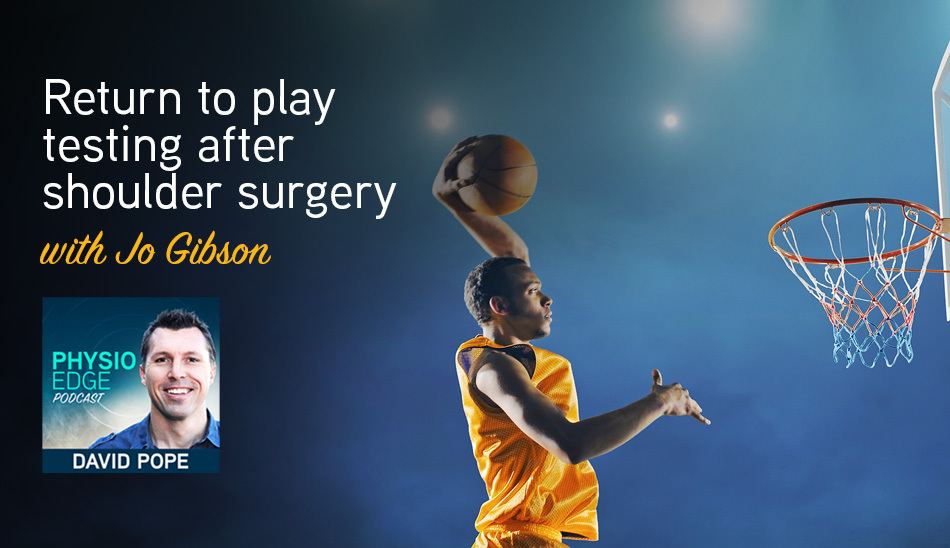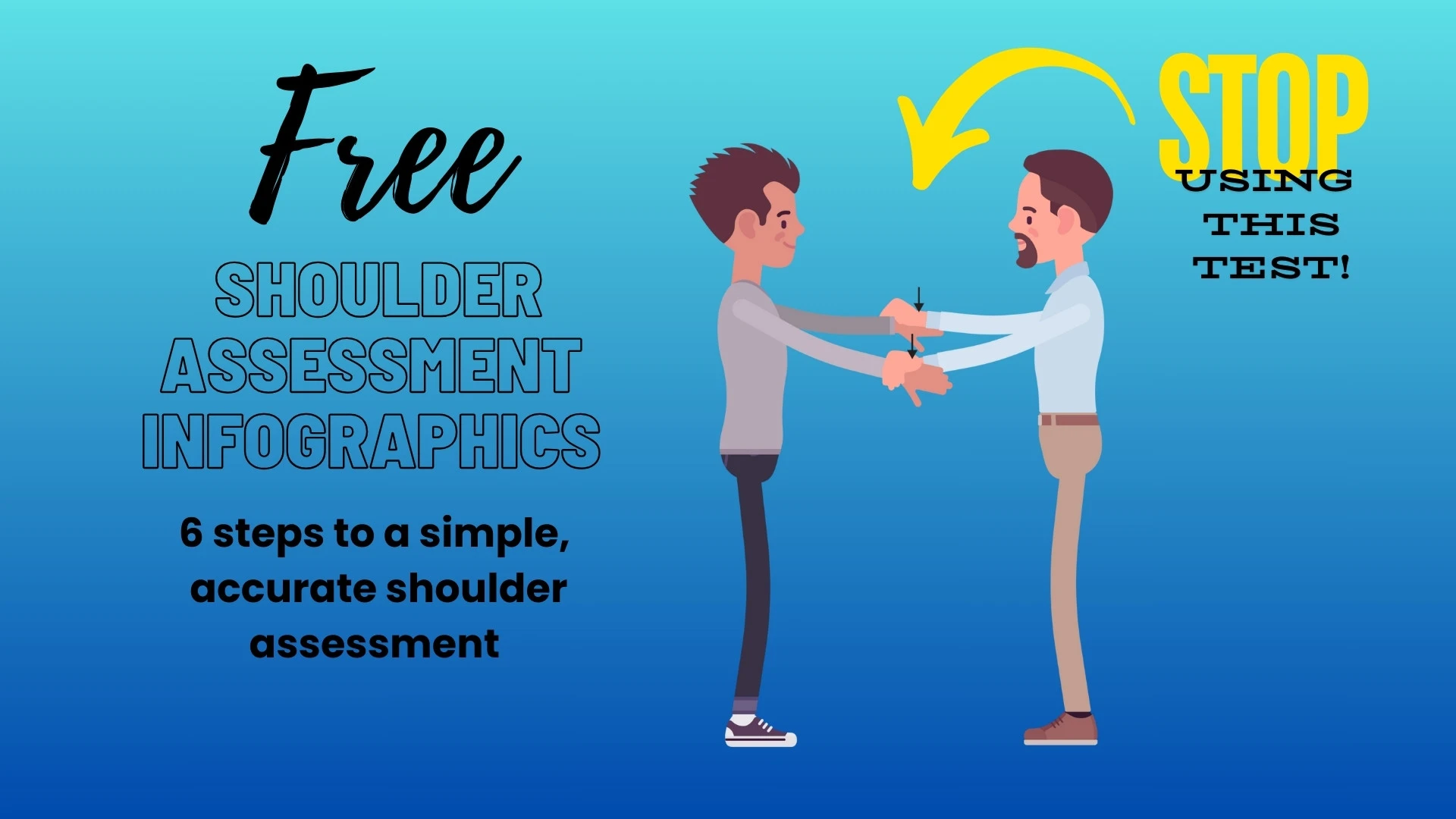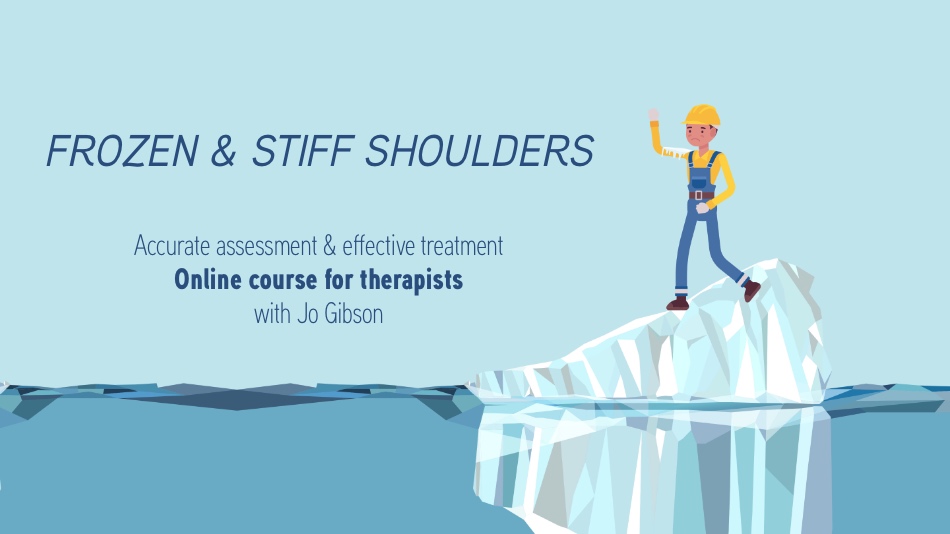
Shoulder surgery in athletes is common following dislocation. Accelerated post-op shoulder stabilisation rehab protocols include early mobilisation to reduce movement, proprioceptive and strength deficits. This has allowed earlier return to play (RTP), however athletes often still have significant proprioceptive and strength deficits up to 2 years post surgery. Despite getting back to play, athletes may struggle to get back to performance.
Following surgery, contact athletes such as rugby players, throwing athletes and young players have additional RTP challenges. Redislocation risks in contact sports such as rugby are high, leading to poor outcomes. Younger athletes are not skeletally mature, and with early RTP following stabilisation surgery may have higher failure rates. How can you identify and address these challenges?
Which tests and features in a patients history help you determine whether a patient is suitable for an early RTP? In this podcast with Jo Gibson (Clinical Physiotherapy Specialist), you’ll explore:
- Which shoulder tests are most valuable with your patients?
- How has emerging evidence challenged our previous approach to RTP testing?
- What are the risks associated with early RTP following shoulder surgery?
- How can you help identify athletes at risk of redislocation?
- Which psychosocial factors impact RTP?
- How does fear of reinjury and levels of anxiety about their shoulder affects RTP?
- How does your patient’s sport of choice affects dislocation risks?
- How is RTP impacted by patients age?
- How do daily stressors impact RTP and predict outcomes?
- Which psychosocial factors impact RTP?
- What is the biggest factor in whether an athlete gets back to play?
- Which questions are key to ask your patients?
- Which questionnaires can you use with your post-op shoulder patients?
- Which tests and combinations of tests have been validated and are evidence-based?
- How can you assess range of movement (ROM)?
- How can you measure patients strength?
- How is rate of force development (RFD) affected following shoulder injury?
- How can you assess RFD?
- How does fatigue impact strength testing eg testing at the start of training compared to the after training?
- How does the kinetic chain impact RTP testing for throwers?
- How can you assess shoulder endurance?
- How can you test if your swimmers are ready for RTP?
- What role does manual therapy have in shoulder rehab?
Podcast handout
Free shoulder assessment infographic series
Frozen and stiff shoulder assessment & treatment with Jo Gibson
Shoulder: Steps to Success online course with Jo Gibson
Improve your assessment and treatment of shoulder pain with the Shoulder: Steps to Success online course with Jo Gibson, now available for enrolment at clinicaledge.co/shouldersuccess
Links associated with this episode:
- Improve your assessment and treatment of frozen and stiff shoulders now with Jo Gibson’s online course at clinicaledge.co/frozenshoulder
- Improve your shoulder assessment & treatment with the Shoulder: Steps to Success online course with Jo Gibson
- Download and subscribe to the podcast on iTunes
- Download the podcast now using the best podcast app currently in existence - Overcast
- Listen to the podcast on Spotify
- Improve your confidence and clinical reasoning with a free trial Clinical Edge membership
- Let David know what you liked about this podcast on Twitter
- Review the podcast on iTunes
- Like the podcast on Facebook
- Infographics by Clinical Edge
- Jo Gibson on Twitter
Articles associated with this episode:
-
Download the podcast handout to receive the articles associated with this podcast.
-
Ashworth B, Cohen DD. Force awakens: a new hope for athletic shoulder strength testing.






